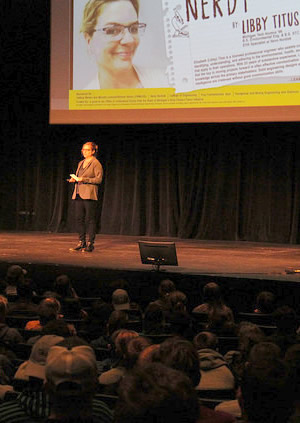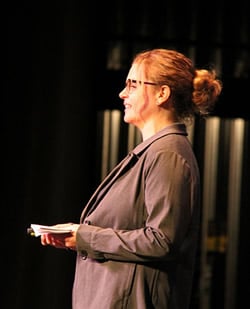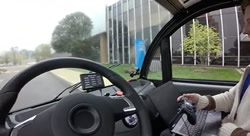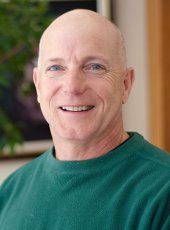
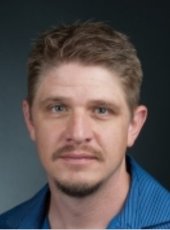
This week’s Dean’s Teaching Showcase selection, made by Dean Wayne Pennington of the College of Engineering, is a unique teaching partnership. Assistant Professor Chad Deering and Lab Manager Bob Barron were selected for “deftly leading our students for the past three summers” through the field course in the Department of Geological and Mining Engineering and Sciences.
GMES Chair John Gierke explains the unique demands and challenges of teaching the field geology course. “While most of us hold a fondness to participate in fieldwork, the glamour wears off when conditions get tough or if the work turns out tedious. Field geology starts a few days after Spring Semester. In addition to the rapidly changing and variable weather, UP fieldwork in May and June is accompanied by hordes of mosquitoes and black flies. The glamour evaporates by the second day. Moreover, field geology is fraught with uncertainty and figuring out the geological setting is tedious. Frustrations with the weather, bugs, and unknown are pervasive. It takes special people to lead students through the five week, all-day, every-day course.”
In addition, Michigan Tech’s field course has non-traditional timing which creates unique learning opportunities, but might make the teaching even more demanding. Pennington explains, “In most institutions, the ‘field course’ in geology is the final course, often following all other coursework. At Michigan Tech, it is usually taken after the second year. This enables students to have a better understanding of the basis for nearly all their subsequent courses … but only if the field course is taught in a way that encourages self-discovery and insight. For many years, Bob and Chad have taken the field course to new levels of integration with the concepts students are exposed to in their courses, helping the students to better master the concepts as well as the practices involved in the various disciplines that are based on these experiences. This approach to field experience is one of the things that makes Michigan Tech unique, and our students more successful upon graduation.”
Deering and Barron’s co-nomination for the Dean’s Showcase is based not on one particular innovation but their collective skills for success in developing students’ field skills in geology. Their complementary styles and knowledge have been an ideal pairing for leading the course, and student evaluations of instruction confirm their effectiveness. They approach each new site with a sequence that includes background literature, field observations, measurements and sampling, then further study in the microscopy lab.
They find ways to reinforce the mineralogy, petrology and structural geology skills developed in prerequisite courses, and insist on frequent individual and small-group interactions in the field to help the students persist, guiding them to an appropriate explanation for each site.
Intermingled through the learning experience are barbecues, brief periods of shooting the breeze in picturesque locales and other recreational activities. The fieldwork activities culminate with students creating geological maps and reports describing their findings. At this point in their studies, students span a spectrum of abilities for scientific writing and creating maps, which require artistic skills along with technical competence.
Gierke articulates the unique teaching challenges of the field course, saying “Achieving a balance of being critical of quality and yet maintaining morale is a knack that I have never mastered—I, unfortunately, excel at the being-critical part. Yet Bob and Chad have somehow figured out how to take students who are exhausted, sunburned and fly bitten and keep them sufficiently motivated to produce maps that could be framed (for some) and develop writing skills that help them through the rest of their curriculum.”
Deering and Barron will be recognized at an end-of-term luncheon with other showcase members, and the team is now eligible for one of three new teaching awards to be given by the William G. Jackson Center for Teaching and Learning this summer recognizing introductory or large-class teaching, innovative or outside-the-classroom teaching methods, or work in curriculum and assessment.
By Michael Meyer, Director, William G. Jackson Center for Teaching and Learning
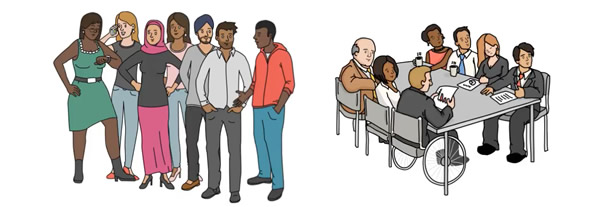

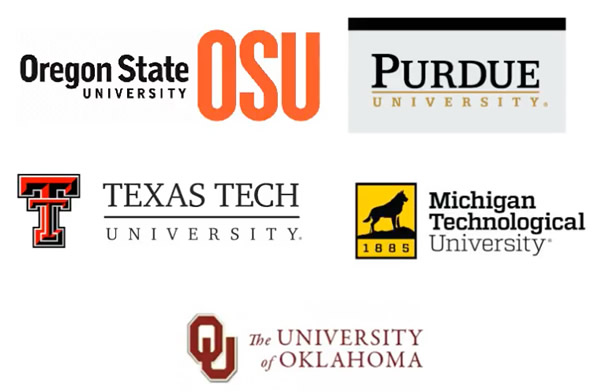
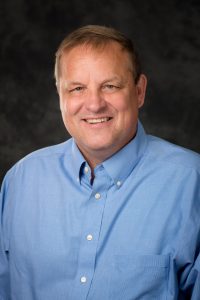
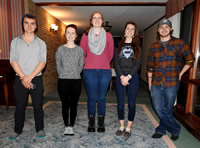
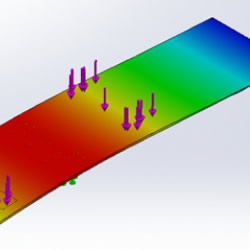 The Fifth Annual Rekhi Innovation Challenge kicked off on Friday Nov. 10, 2017. Three Enterprise teams are competing for funding this year: Blue Marble Security, BoardSport Technologies and Velovations. The Rekhi Challenge is a crowdfunding competition to help promote and support student innovation and entrepreneurship through Michigan Tech’s crowdfunding site, Superior Ideas. The team that raises the most money will receive a monetary match of up to $5,000.
The Fifth Annual Rekhi Innovation Challenge kicked off on Friday Nov. 10, 2017. Three Enterprise teams are competing for funding this year: Blue Marble Security, BoardSport Technologies and Velovations. The Rekhi Challenge is a crowdfunding competition to help promote and support student innovation and entrepreneurship through Michigan Tech’s crowdfunding site, Superior Ideas. The team that raises the most money will receive a monetary match of up to $5,000.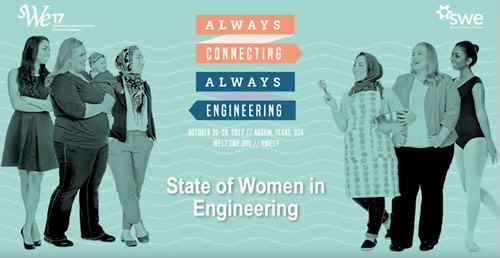
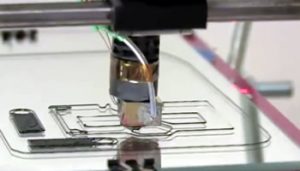 Three Michigan Tech student teams have been chosen to compete in the Accelerate Michigan Innovation Competition in Detroit on Nov. 16, 2017. The student teams will compete for a total of $21,000 in funding.
Three Michigan Tech student teams have been chosen to compete in the Accelerate Michigan Innovation Competition in Detroit on Nov. 16, 2017. The student teams will compete for a total of $21,000 in funding.